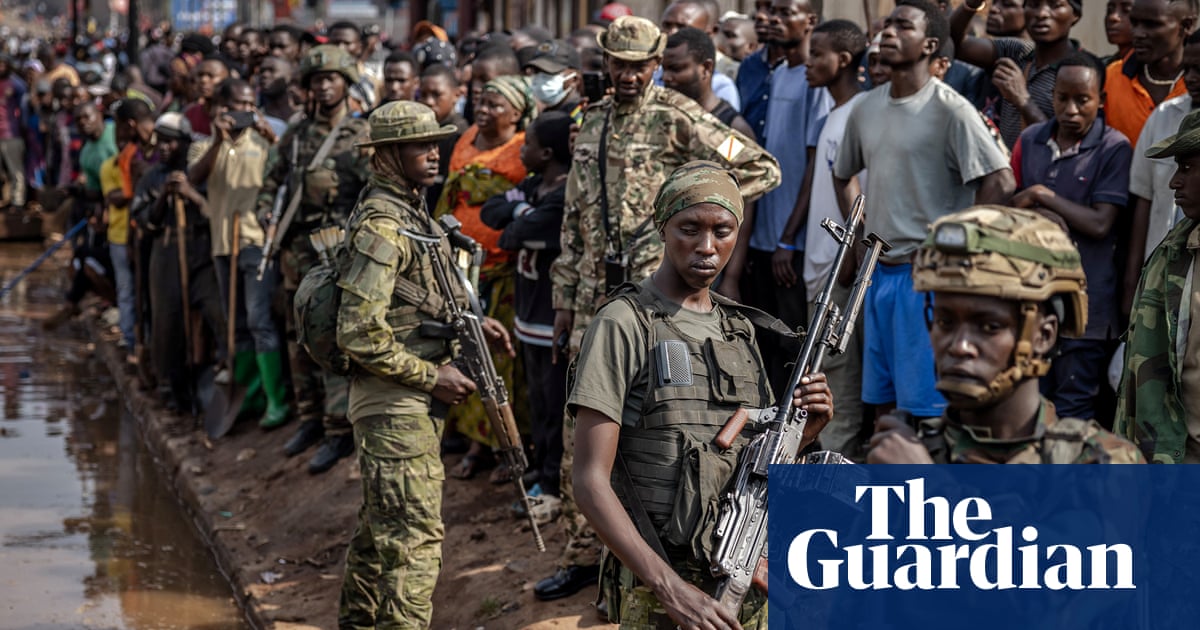About 7,000 people have died in fighting in the east of the Democratic Republic of the Congo since Rwanda-backed M23 rebels started renewed advances in January, the DRC’s prime minister has said.
At a high-level meeting of the UN’s human rights council in Geneva on Monday, Judith Suminwa Tuluka also said the war had left about 450,000 people without shelter after the destruction of 90 displacement camps.
At the start of the year, the M23 militia embarked on a fast advance in eastern DRC, fighting the Congolese army and capturing two of the region’s largest cities: Goma, which is the capital of North Kivu province, and Bukavu, which is the capital of South Kivu province.
It was the worst escalation in more than a decade of the long-running conflict in the region and risked drawing in neighbouring countries and leading to a regional war.
The conflict, which has raged despite calls for a ceasefire, has exacerbated the humanitarian situation in the region. In Goma alone, a city of 2 million people and a humanitarian hub for those who have been displaced, the fighting killed nearly 3,000. Those injured have overwhelmed medical facilities, with patients with gunshot and shrapnel wounds cramming into hospitals.
Last week, the UN human rights office accused M23 rebels of killing three children in Bukavu.
On Sunday, the DRC’s communications minister, Patrick Muyaya, said that Rwanda and M23 had killed more than a dozen people in Goma.
More than 40,000 people, mostly women and children, have fled to Burundi in February because of the conflict, including more than 9,000 in a single day.
M23, which is made up of Tutsis who left the Congolese army more than 10 years ago, is one of more than 100 armed groups fighting against Congolese forces in the mineral-rich eastern DRC.
The group has more than 8,000 fighters, according to the UN, which has accused neighbouring Rwanda of backing the militia and said the fighters were supported by about 4,000 troops from Rwanda. Rwanda denies the claims.
M23 says it is fighting to protect Tutsis and Congolese people of Rwandan origin from discrimination and wants to transform Congo from a failed state to a modern one. But analysts have said that is simply a pretext for Rwanda’s involvement, and suggested Kigali is actually motivated by designs on its neighbour’s mineral resources.
after newsletter promotion
The militia has said it will march to the capital, Kinshasa. It has also said it wants to unseat the government of DRC’s president, Félix Tshisekedi, and to “cleanse” the cities it has captured of alleged bad governance and insecurity.
In a sign of disarray in the Congolese security forces amid the offensive, the Congolese army has called on deserters to rejoin their units, and crowds of Congolese police officers who switched to M23 sang and clapped in Bukavu on Saturday, preparing for retraining under the authority of the rebels.
About 1,800 police officers have surrendered and were going to be retrained, with 500 more due to do so, M23’s spokesperson, Lawrence Kanyuka, said.
On Saturday, Tshisekedi said he would launch a unity government. In an address at a meeting of the ruling Sacred Union coalition, he said: “We must unite … let’s stand together to face the enemy.”
Reuters and the Associated Press contributed to this report










